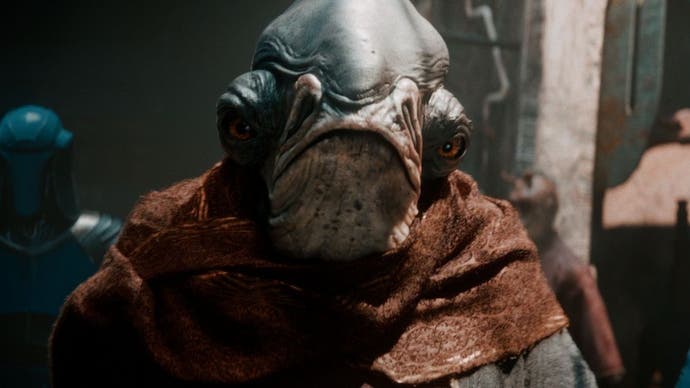Star Wars Eclipse is an action adventure with "fundamentals" of previous Quantic Dream games
R2 D-tails.
Quantic Dream boss Guillaume de Fondaumiere has said Star Wars Eclipse will "keep the fundamentals" of the studio's previous games.
Speaking to IGN about the upcoming game, de Fondaumiere shared that, while with each new title the studio does "try to innovate" and "explore new ground", Quantic Dream will always retain various aspects of their games in future releases.
"With Star Wars Eclipse we're certainly going to keep the fundamental elements of a Quantic Dream game," he explained.
These fundamentals will include "[a] very strong story, very strong characters, multiple playable characters, and of course, giving the players the possibility to change, through their actions and decisions, how the story unfolds," de Fondaumiere said.
In addition to these comments, de Fondaumiere also stated Star Wars Eclipse is an "action-adventure" game, so we will see a certain 'change in the formula' to reflect this.
"The action elements are also going to be very important... we will continue to do what we do best, which is passionately work [and] craft our game with a lot of attention to detail," he said.
Quantic Dream originally announced Star Wars Eclipse at The Game Awards last year, with the title set to explore the era of the High Republic, a time that was bountiful for the Republic and Jedi Order.
Since its announcement, the studio has made headlines for a variety of reasons.
Most recently, it was announced that Chinese game company NetEase had acquired Quantic Dream for an undisclosed amount.
Before this acquisition came to light, de Fondaumiere's partner at Quantic Dream David Cage responded to the past allegations of an unhealthy culture and inappropriate behaviour at the studio, something previously described as a "smear campaign".
"I don't think we had an aggressive attitude," Cage said in August. "When you're accused of things that go against everything you believe in, everything you've done in your life, it hurts. It went beyond just attacking the studio culture.
"Of course, like any human organisation, we are not perfect by any means," Cage continued. "But are we the kind of studio that was described? Our employees have said repeatedly: it's not true. Can we improve? Yes. Have we made mistakes in the past? Probably. But we had to do something about what was being said. We were so hurt by specific allegations that we know are wrong or false, that we had to defend ourselves. We wanted people to hear our voice."


